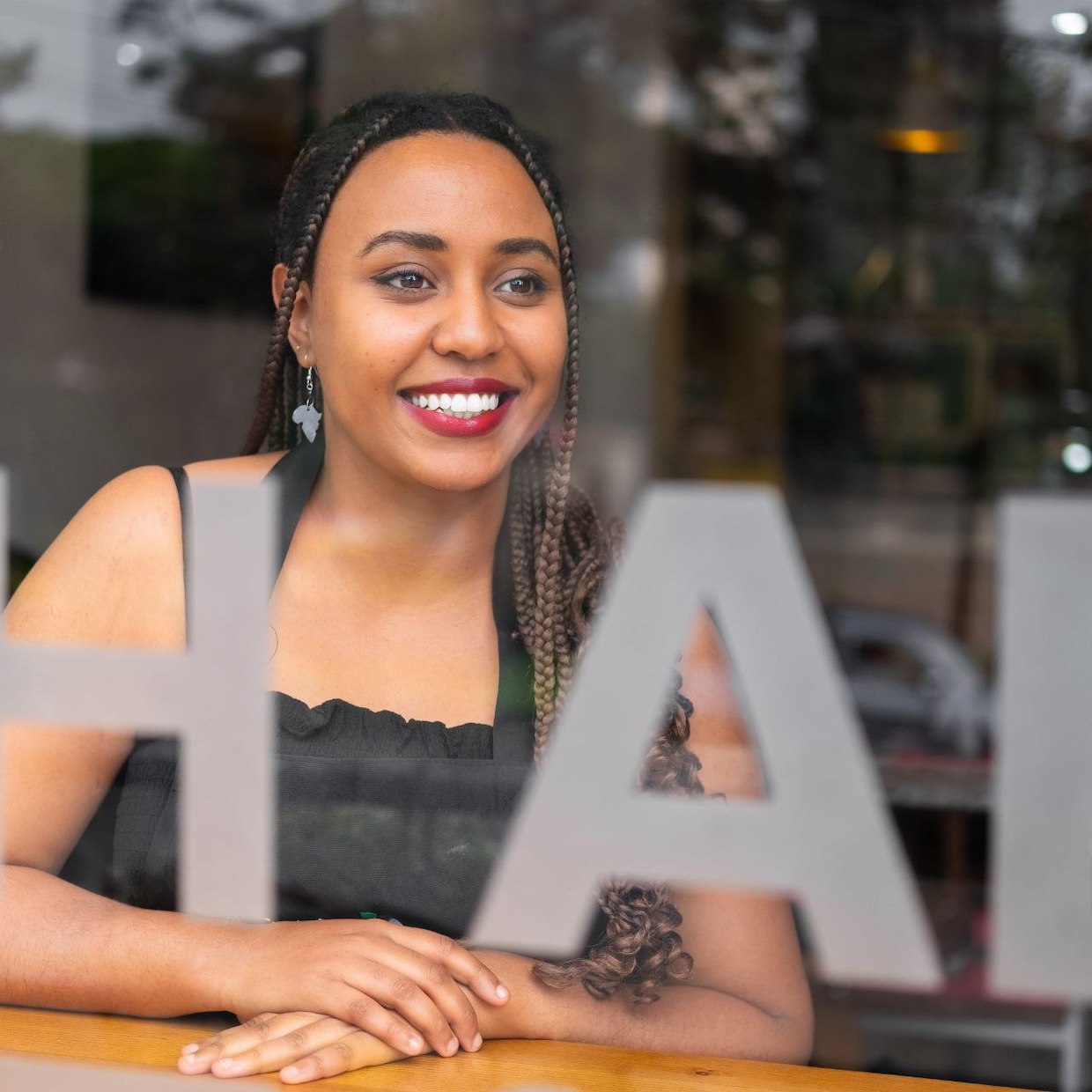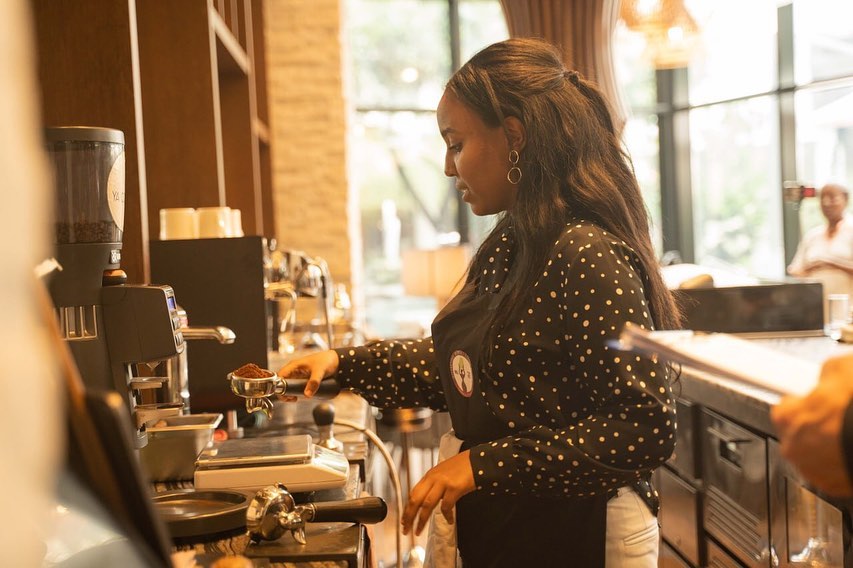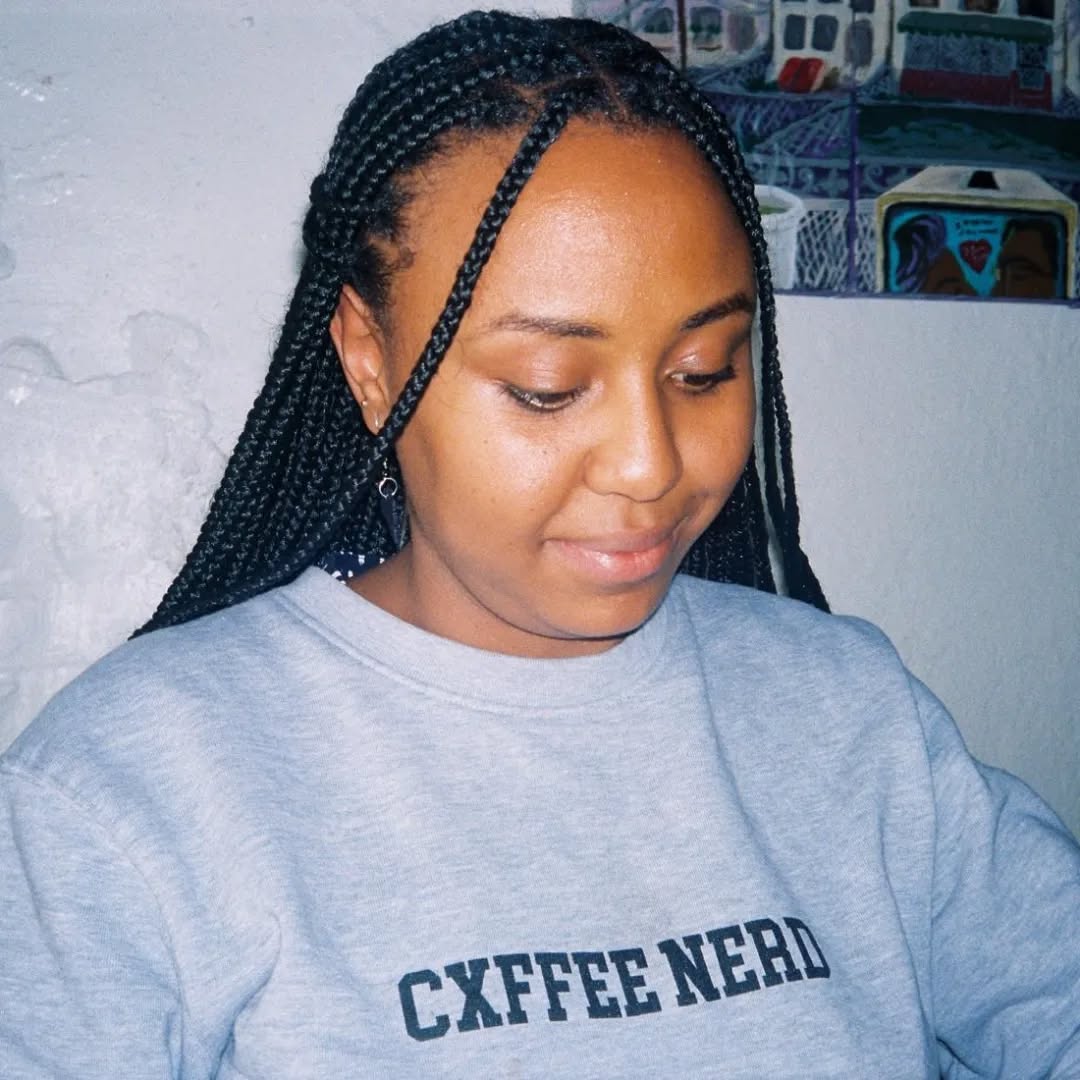One of Beamlak Bekele’s earliest memories of her father is watching him cup coffee in a laboratory. Growing up in a coffee-centered family in Addis Ababa, Ethiopia, Bekele never imagined she would end up pursuing the same work — let alone become the second-place finisher in a national barista championship. Instead, she studied architecture and urban planning.
Eventually, at the urging of her older sister, Sofia, Bekele took a quality control course and began working as a coffee laboratory assistant at Addis-based brokerage and quality control office Tsega FTA. Her subsequent role as a green coffee export manager with Addis-based exporter Siniws Business offered Bekele a deeper understanding of the global coffee market and the inequities that exist within it.
“I saw a lot of injustice and inequity,” she recently told DCN. “There were a lot of people who weren’t passionate about coffee. A lot of people in Ethiopia do it for the foreign exchange or so they could import goods.”
Bekele was motivated to make a difference, and she started working with the gender-equity-focused nonprofit Equal Origins. Later, she became the project coordinator for the Ethiopian chapter of International Women’s Coffee Alliance. In her current role, she works on projects that promote inclusivity, coffee education and environmental protection. She also worked as a part-time barista at Cherish Addis Cafe in Addis Ababa, which is also where she trained for the national barista championships.
“I feel very privileged,” she said. “Being fluent with language gives me an opportunity that the majority of people in coffee, especially women, have very little access to, especially at the farm level. They have little access to education, to coffee trainings, to understanding coffee from a global perspective. I feel like there’s still a long way to go, and the people who have privilege like me have a responsibility to carry others on, to be the voice of others who don’t have the privilege that I do.”
Bekele has long advocated for mutual exchange of information, recognizing that people in the Global North can learn as much from those in the Global South as vice versa.
“People come [to Ethiopia] all the time for origin trips, and people here are very welcoming. But when it comes to it being reciprocated, people from here can’t afford most of the expos,” she shared. “And the ironic part for me is when people gather to discuss important conversations about producer countries, we rarely see actual representation of people from producing countries.”
Given her passion for bringing people together to truly exchange information and learn from one another, Bekele was grateful to participate in the recent Barista Exchange with Cxffeeblack.
“It was a really nice experience to be able to have that space to share amongst each other [not only] our realities, and the challenges that we’re facing in industry, but our hopes for the future as well,” she said.
Here’s more from DCN’s recent interview with Beamlak Bekele…
What about coffee excites you the most?
I’ve always wanted to understand how things work, and understanding coffee is such a vast topic — the science, the art, the different types of skills people have to be able to understand the sensory aspects of it, the barista aspect of it. I’m always trying to learn more.
Other than that, it’s the passion that people have about coffee and how that bonds them. It creates an experience and a relatability between each other. There’s a really nice connection between people, regardless of the injustice in the coffee industry. The fact that people from a certain part of Africa are able to connect with people in a different part of the globe is really beautiful and powerful. I believe it could also be able to change the bad aspects of coffee because there’s relatability and a strong bond between people.
What about coffee troubles you the most?
The injustices in the coffee industry. It’s not democratic to not have the space provided for people from producing countries so they can voice their opinions.
What would you be doing if it weren’t for coffee?
I started out as an architect. I did my undergrad in architecture and urban planning, but I don’t think I would continue my career in architecture. I’m fascinated by how people’s experiences shape who they are as a person, so I would probably be a psychologist or a therapist.
[Disclaimer: At the time of this writing, the publisher and editor of Daily Coffee News had an immediate family member on the IWCA board.]
Comments? Questions? News to share? Contact DCN’s editors here. For all the latest coffee industry news, subscribe to the DCN newsletter.
Related Posts
Jen Roberts
Jen Roberts is a Paris, France-based writer and avid coffee drinker. She’s currently writing a book on women in coffee.









Comment